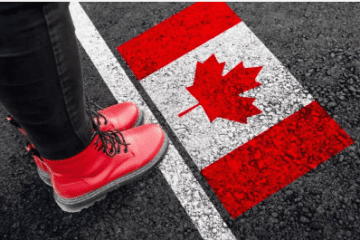In an increasingly globalized world, immigrating to a new country can often be complex. One of the most critical steps in migrating to Canada is obtaining the Confirmation of Permanent Residence (“COPR”). Pax Law Corporation is here to provide you with the requisite information and help you navigate the COPR process with ease. It is crucial to understand that COPR is not merely a piece of paper—it is your golden ticket to the promise of a new life in Canada. As we delve into topics that elucidate the intricacies of the COPR process, provide you with practical tips, and help you overcome common challenges, you will gain greater insight into your journey to becoming a permanent resident of Canada.
Table of contents
Understanding COPR: An Introduction
The Confirmation of Permanent Residence (“COPR”) is a document that serves as proof that its holder has been granted Permanent Resident status in Canada. Permanent resident status is granted by Immigration, Refugees and Citizenship Canada (the “IRCC”), the department of the Government of Canada responsible for immigration matters. When you receive your COPR, it is not just a document you are getting—it is the freedom to live, work, or study anywhere in Canada, access healthcare, and most importantly, it is a step closer to Canadian citizenship.
What is the Confirmation of Permanent Residence (COPR)?
A COPR is a legal document issued by the IRCC once your application for permanent residence has been approved. The COPR document contains crucial information, including your Unique Client Identifier (“UCI”), name, gender, date of birth, photo, the category under which your permanent residency has been approved, and the expiry date of your permanent residency — typically five (5) years from the date of issue. The COPR and your passport are your legal travel documents when you first enter Canada as a permanent resident. Please note, that a COPR is not a travel document on its own — a valid passport must always accompany it.
Importance of COPR in the Canadian Immigration System
The COPR is of paramount importance in the Canadian immigration system. It is a testament that you have fulfilled all legal and regulatory requirements to reside in Canada as a permanent resident. The COPR forms the basis for the issuance of a Permanent Resident Card – a must-have for all permanent residents of Canada. The PR Card is particularly important if you plan to travel outside of Canada after gaining your residency.
Once you become a permanent resident, the IRCC no longer considers you a foreign national. Instead, you are on the path to becoming a Canadian citizen. The COPR proves that you have crossed the line from temporary to permanent status. While it does not offer all the rights of Canadian citizenship (like the right to carry a Canadian passport and vote), it does open the door to this possibility in the future.
The issuance of the COPR is an essential milestone on your immigration journey. It signifies that you have successfully navigated the complex maze of the Canadian immigration process. It is a declaration by the Canadian government that you, as a foreign national, have met all the requirements to be a permanent resident of Canada.
Remember, your COPR also comes with an expiry date. It is vital that you enter Canada before this date, as failure to do so may result in your permanent resident status being revoked. The COPR process is intricate and requires careful attention to detail. The next sections will guide you through this process and will help you understand what to expect and how to ensure your journey to Canadian residency is as smooth as possible.
The COPR Process: Step-by-step Guide
Understanding the COPR process can often seem overwhelming, but worry not. Pax Law’s step-by-step guide is here to help you navigate this critical stage of your immigration journey.
1. Filing the Initial Application
The first step to obtaining your COPR begins with submitting an application for permanent residence. Depending on your situation, you might apply through one of the various immigration programs like the Express Entry, Provincial Nominee Program (“PNP”), Family Class, or Business Immigration. Ensure that you choose the program that best suits your qualifications and circumstances.
Once you have selected the appropriate immigration program, gather the necessary documentation and complete the application forms. The documentation required varies depending on the program you choose, but will usually include your identification documents, proof of language proficiency, and educational assessment reports.
After filling out the forms and gathering the required documents, submit your application and pay the processing fee. It is important to triple-check all the information you provide because even minor errors can lead to delays or even the rejection of your application.
2. Completing the Medical Examination

After submitting your initial application, you must complete a medical examination. A medical exam is a standard procedure in the application process and ensures you do not pose a health risk to Canada and Canadian residents. A physician approved by the IRCC, often referred to as a panel physician, must conduct the medical examination. The panel physician will conduct a general physical examination, chest X-rays, and laboratory tests during the medical examination and send the results directly to the IRCC.
It is worth noting that the medical results are valid for one (1) year from the examination date. Therefore, you might have to undergo another if you do not enter Canada as a permanent resident within a year of your medical examination.
3. The Interview: Preparing and What to Expect
In some cases, the IRCC might require an interview with the applicant. If you are asked to attend an interview, you will receive a notice with the time and location details.
During the interview, an immigration officer will ask questions to confirm the information you provided in your application, assess your language proficiency, and evaluate your admissibility to Canada.
It is advisable to bring along all original documents to the interview, including passports, civil status documents, and any other documents related to your application.
4. Receiving your COPR Document
Once the IRCC approves your application, they will send you your COPR document and a valid immigrant visa. You must carefully review these documents to ensure all your personal information is correct. If there are any errors, you should contact the Canadian consulate or immigration office immediately.
Required Documentation for COPR
Below we delve into the primary documents required for acquiring your COPR.
Identification Documents: What You Need
For the COPR process, you must provide several identification documents, including a valid passport or travel document. It is crucial to ensure that your passport is valid for a period that extends beyond the expected processing time.
If you are applying from within Canada, you must provide proof of your legal status in Canada. Proof of legal status in Canada can include a study permit, work permit, or visitor record.
In addition, you might be required to provide two recent passport-sized photographs. These photos must meet the specifications outlined by the IRCC.
Proof of Eligibility: Demonstrating Your Qualifications
The next set of required documents is related to your eligibility. The documents you need will depend on the immigration program you apply through. However, common documents include:
- Educational Documents: This includes transcripts, diplomas, degrees, or certificates from secondary or post-secondary schools.
- Language Proficiency Test Results: Evidence of English or French language proficiency is required. Acceptable tests include the IELTS for English and TEF for French.
- Work Experience Letters: These should outline your job duties, hours worked, and the duration of employment.
Remember, all documents submitted must be either the original or a certified copy. In cases where the original documents are not in English or French, you must provide a translated copy, and a certificate from the translator.
Overcoming Common Challenges in the COPR Process
Receiving your Canadian residency does come with its fair share of challenges. In this section, we delve into some of the most common obstacles applicants face during the COPR process and provide practical guidance to overcome them.
Dealing with Delays: Practical Tips
One common challenge applicants face during the COPR process is delays. These can occur for various reasons – from incomplete applications and documentation issues, to processing delays from the IRCC itself.
If you are experiencing delays, here are a few practical steps you can take:
- Track your application: You can check the status of your application online through the IRCC website. If your application is beyond the standard processing time, you may want to contact the IRCC for an update.
- Ensure all documents are correct: Any discrepancies in your documents or application can cause delays. It’s important to double-check your application and documents before submission.
- Stay patient: Immigration processes can often take longer than anticipated. Remember that each application is unique and may not follow the same timeline as others.
Missing Documentation: Steps to Take
Another common issue is missing documentation. If you realize that you have forgotten to include a document in your application or if the IRCC contacts you requesting additional documents, do not panic. You will usually be given an opportunity to submit any missing documents. Respond promptly and make sure you provide exactly what has been requested.
If you have lost a document, try to get a replacement as soon as possible. If that is not possible, a written explanation of why the document is missing may be accepted.
Understanding Immigration Laws: Resources and Guidance
There are several resources available to help you navigate Canadian immigration laws.
First, the IRCC’s official website is a treasure trove of information. It contains a wealth of guidance, including eligibility criteria, document checklists, processing times, and application guides.

For more complex issues, you might consider seeking legal advice. Immigration lawyers at Pax Law have the expertise to guide you through the process, explain complex legal terms, and ensure you meet all the requirements.
Your New Rights and Responsibilities as a Permanent Resident
As a law firm that has walked alongside many individuals on their journey toward becoming permanent residents in Canada, we can attest that obtaining your COPR is a moment of triumph. However, this new status brings a new set of rights and responsibilities.
The Benefits of Permanent Residency
Becoming a permanent resident of Canada offers many benefits that enhance your life and give you a sense of belonging in your new home. Here are a few:
- Right to Live, Work, and Study Anywhere in Canada: As a permanent resident, you can live, work, or study anywhere in Canada, giving you flexibility and freedom.
- Access to Social Benefits: You will have access to social benefits like health care coverage and social security services.
- Protection Under Canadian Law and the Canadian Charter of Rights and Freedoms: As a permanent resident, you are protected under Canadian law and have the rights and freedoms defined in the Canadian Charter of Rights and Freedoms.
- Potential Pathway to Canadian Citizenship: After residing in Canada for a certain period, you may be eligible to apply for Canadian citizenship.
The Obligations of a Permanent Resident
While the benefits of being a permanent resident are substantial, it is equally important to understand your obligations:
- Residence Obligation: To maintain your status as a permanent resident, you must live in Canada for at least two (2) years in a five (5) year period.
- Obey Canadian law: As a permanent resident, you are required to obey Canadian law, both federal and provincial.
- Carry and present your valid Permanent Resident card or Permanent Resident Travel Document (“PRTD”): When travelling to Canada, you must carry and present your valid Permanent Resident card or PRTD.
- Renew Your Permanent Resident Card: Your Permanent Resident card needs to be renewed every five (5) years.
Keep Sailing Towards Your Dream
Deciding to emigrate and become a permanent resident in a new country is no small feat. It is a journey marked by hopes, dreams, and at times, challenges.
Summary of the COPR Process
The COPR process is a detailed and complex procedure that requires careful attention. Each step requires meticulous preparation and understanding, from your initial application, through medical exams and potential interviews, to receiving your final document. Knowing the required documentation for each stage is crucial, and understanding how to navigate common challenges, such as delays or missing documentation, is important and will help streamline the process.
As an aspiring permanent resident, understanding your future rights and responsibilities in Canada is paramount. These include the freedom to live, work, and study anywhere in Canada and an obligation to obey Canadian law and maintain residency requirements.
Final Thoughts and Encouragement for Aspiring Residents
While obtaining your COPR can sometimes feel intimidating, remember that each step you take is a stride toward achieving your dream of living in Canada. Patience, persistence, and careful preparation are your companions on this journey. As you progress, remember that the reward – a life in a country that values diversity, equality, and opportunities for all – is well worth the effort.
Frequently Asked Questions
What should I do if my application is rejected?
If your application is rejected, you can request a reconsideration if you believe there was an error in the decision. If not, you can always improve on the areas that led to the refusal and reapply. Consulting with an immigration lawyer can be beneficial in this situation.
How can I expedite the COPR process?
While you cannot directly expedite the process, ensuring that your application is complete and accurate, submitting all necessary documents promptly, and quickly responding to IRCC requests can help avoid unnecessary delays.
Can I travel outside of Canada with my COPR?
Yes, you can. However, to return to Canada, you must have a valid Permanent Resident (“PR”) Card or PR Travel Document (“PRTD”) from Canadian immigration authorities.
What happens if I lose my COPR document?
If you lose your COPR document, contact the IRCC as soon as possible to report the loss and get instructions on how to obtain a replacement.
Can my COPR status be revoked?
Yes, under certain circumstances like serious criminality, misrepresentation, or failing to meet residency obligations, your COPR status can be revoked.
Helpful Resources:
- Confirming your permanent residence online [Government of Canada]
- Permanent Residence Sign-In Portal [Government of Canada]



0 Comments